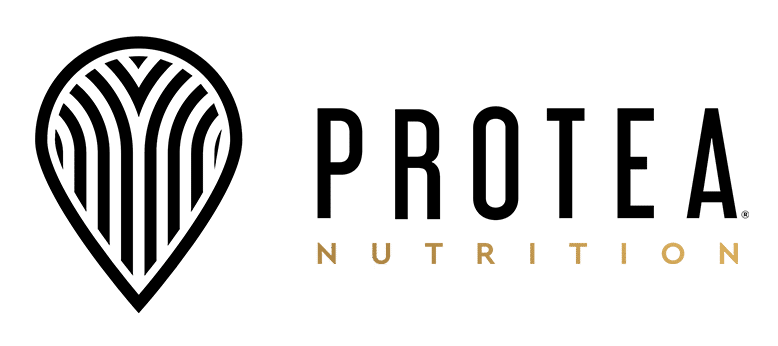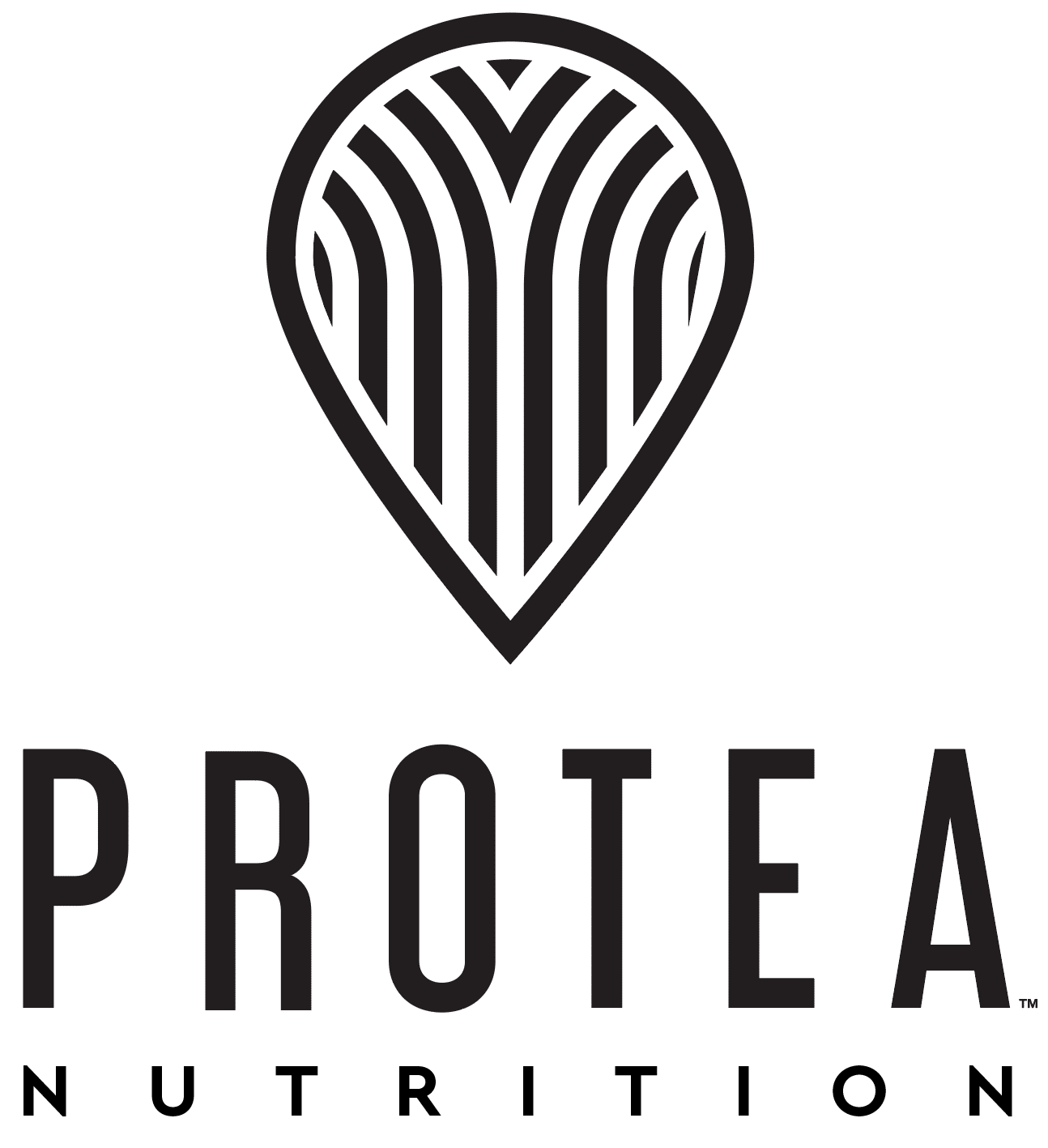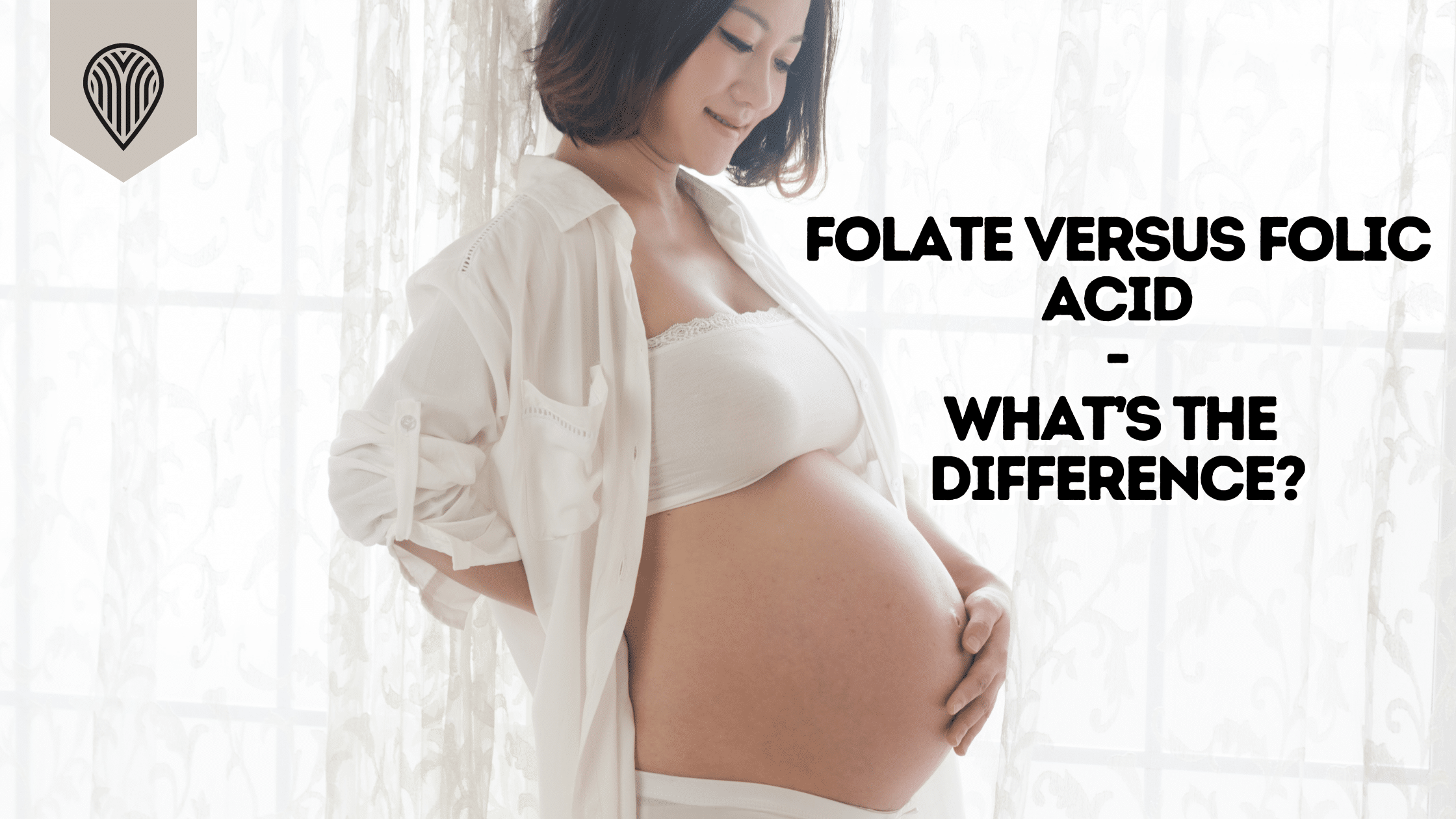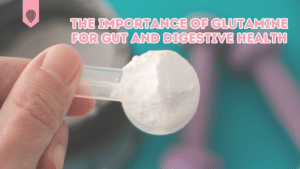If you’re pregnant, been pregnant, or trying to become pregnant, chances are you’ve heard about folic acid, folate or both. Your healthcare provider has probably suggested you take a prenatal to ensure adequate levels of folate or folic acid. Folate and folic acid are very important to protect your developing baby from neural tube defects like spina bifida. Such birth defects can occur as early as 3-4 weeks gestation as this is when your baby’s spinal cord and brain begin developing. Therefore, it’s very important to start taking folate early on in your trying to conceive (TTC) journey.
But which one do you look for in a prenatal? Folate or folic acid? Does it matter?

There seems to be a lot of confusion between the two vitamins. Many will use the two names interchangeably, but this is incorrect and not accurate. While they are both different forms of Vitamin B9, there is a distinct difference between the two.
Vitamin B9 is an essential nutrient, meaning the body doesn’t produce it and it needs to be acquired through food and supplementation. Folate is the naturally occurring form of vitamin B9. Folate is converted by your digestive system into levomefolic acid or 5-methyltetrahydrofolate (5-MTHF) before entering the bloodstream.
Folic acid, on the other hand, is the synthetic form of vitamin B9. Unlike folate, not all of this synthetic version is absorbed by your digestive system for conversion into 5-MTHF. Instead, it needs help from your liver and other tissues. This causes delays in the absorption process. Even small doses of 200-400mcg folic acid may not be fully absorbed until the next dose is taken. Unmetabolized folic acid in the bloodstream has been linked to serious health issues like increased cancer risk. However, further research is currently needed.
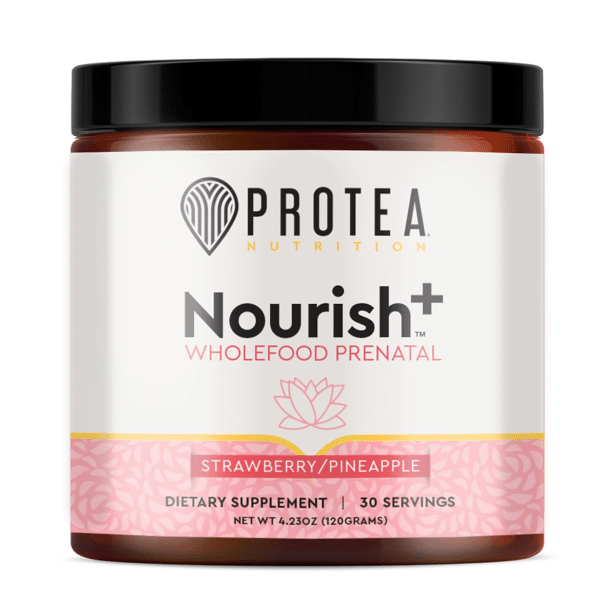
Still, it’s best to acquire folate from whole foods sources whenever possible. Foods such as broccoli, asparagus, leafy greens and avocado are among some of the best sources of folate.
Nevertheless, some people, including pregnant women, require higher levels of folate and supplements are an easy way to ensure adequate uptake. That’s why when searching for a prenatal vitamin, it’s crucial to find one with folate. The CDC recommends 400-1000mcg of folate for pregnant women. In order to get enough vitamins, many prenatal vitamins will have servings sizes of 2-8 capsules or tablets per day! That can get expensive and not to mention, difficult to remember to take every day. Hello pregnancy brain!
That’s why a powder form is super convenient! Just one scoop in water and you’re done for the day. That was the thinking behind Protea Nutrition’s newest product, Nourish+ prenatal. With 800 mcg of folate as 5-MTHF per scoop, say goodbye to all those pills! It even comes as a delish strawberry pineapple flavor!
*These statements in this blog have not been evaluated by the Food and Drug Administration. This product is not intended to diagnose, treat, cure, or prevent any disease.
